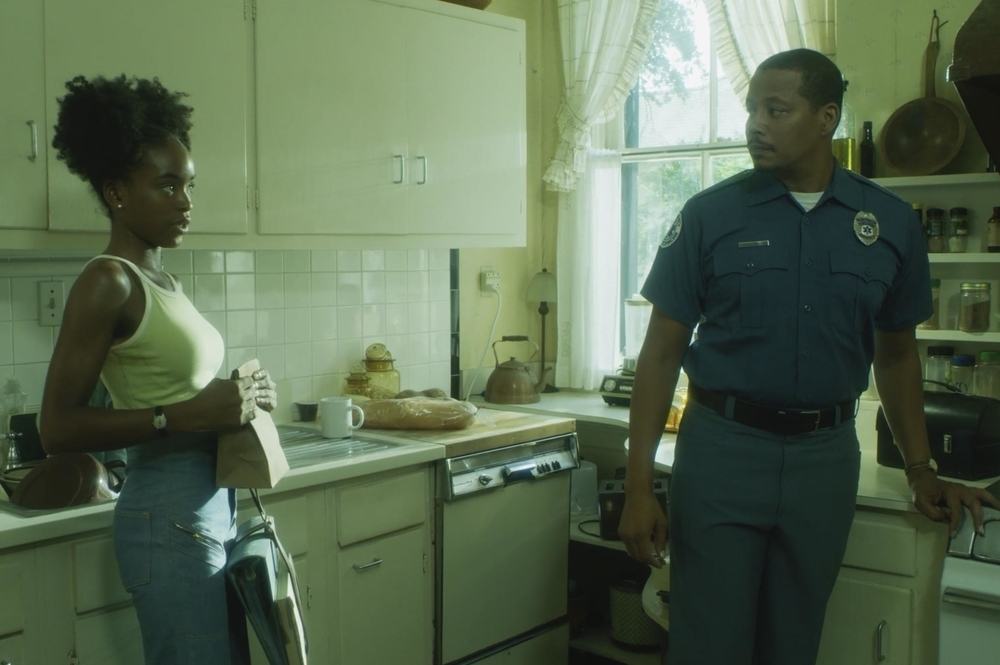Capsule reviews for June 10

Lovie Simone and Terrence Howard star in THE WALK. (Photo: Vertical Entertainment)
B-Boy Blues
Legal troubles aside, actor Jussie Smollett’s (“Empire”) directorial debut is an uneven romance that strains to be progressive and profound but winds up as little more than eye candy for its target Black gay demographic. It’s set in Brooklyn, where a respected journalist (Timothy Richardson) falls for a bike messenger (Thomas Mackie) with a complicated past, causing potential barriers with cultural background and socioeconomic class. This adaptation of James Earl Hardy’s novel is an admirable attempt to connect with an underserved segment of the LGBTQ audience but trades nuance and subtlety for over-the-top melodrama and gratuitous sex appeal. These are fresh faces telling a familiar story. (Not rated, 109 minutes).
La Belle Epoque
Sure it’s manipulative, but this uneven French romantic comedy is also overflowing with old-fashioned uplifting charm. Despite its title, the film is set in the present day, and begins with aging Paris cartoonist Victor (Daniel Auteuil) and his longtime wife (Fanny Ardant) on the verge of a breakup. Out of desperation, he hires a young illusionist (Guillaume Canet) whose company re-enacts personalized episodes from its customers’ pasts in precise detail. In this case, Victor is taken back to a 1970s cabaret where he met his true love. Although director Nicolas Bedos sometimes struggles to balance farce with melodrama, his sturdy concept is bolstered by terrific performances. (Rated R, 115 minutes).
I’m Charlie Walker
The title character, especially as portrayed by the charismatic Mike Colter (“Luke Cage”), is more compelling than this highly uneven drama based on the true-life persistence of a trucking entrepreneur who schemes to combat prejudice. In 1971 San Francisco, an oil tanker spill becomes a lucrative opportunity for Charlie, who charms his way into a contract to clean up the beach. But along the way, he plots to level the racial playing field with his greedy new corporate bosses. In an effort to craft a suave working-class folk hero, the shallow and anachronistic film struggles to raise the stakes while finding tonal consistency. Charlie deserves better. (Rated R, 79 minutes).
Lost Illusions
With the dramatic heft to support its resplendent visuals, this French costume drama adapted from an Honore de Balzac novel is a richly textured epic that yields a fresh resonance. The story follows a young writer (Benjamin Voisin) who leaves his small town for Paris dreaming of fame, only to lose everything when he gets there. Starting over, he switches from poetry to journalism, where his ethics are tested by capitalism run amok. The film is tonally uneven and the persistent narration can be overwhelming. However, director Xavier Giannoli (Marguerite) uses stylish period re-creation and strong performances to provide a multilayered glimpse into obsession and ambition. (Not rated, 149 minutes).
Small Town Wisconsin
The affection for its setting is evident throughout this bittersweet drama examining the convergence of addiction and fatherhood that yanks too aggressively at the heartstrings. Wayne (David Sullivan) is a divorced alcoholic devastated when he loses a custody battle with his ex, who plays to take their preteen son (Cooper Friedman) to live in Arizona. So Wayne schemes to take the youngster to Milwaukee for one final weekend together, which prompts some unexpected turns. Despite some intriguing character dynamics and performances that generate sympathy for this fractured family, the film stumbles when it veers into melodrama without the narrative dexterity to tackle its weightier ambitions. (Not rated, 109 minutes).
The Walk
Worthwhile intentions are offset by heavy-handed melodrama in this earnest glimpse into the true-life tension surrounding the racial integration of Boston schools through a 1974 busing mandate. Among those effected are a police officer (Justin Chatwin) reluctantly assigned to safeguard Black students attending a predominantly white campus, a paramedic (Terrence Howard) whose teenage daughter is nervous about the changes, and an ex-con (Jeremy Piven) whose personal grudges lead to violence. Amid all the shifting perspectives on the conflict, none of the characters is sufficiently developed to give the multifaceted story the sense of urgency or relevance it needs. The result lacks subtlety and nuance. (Rated R, 105 minutes).